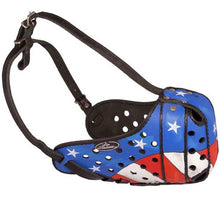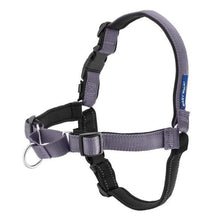Solving Common Behavior Problems In German Shepherds

German shepherds were originally bred to work. As such, they’re smart, energetic, and curious. They also love to learn and are loyal companions. Due to their personality and drive, they require daily mental and physical exercise.
Their personality traits make them wonderful active pets. But they can also pose certain behavior challenges. They do best with an owner who understands how important training and socialization are for working breeds.
In fact, their training and socialization is non-negotiable. A quick online search will reveal countless dogs that have been surrendered to shelters and rescues simply because they were acquired by people who were not prepared to raise them.

Dedication to teaching what is expected of them is very important for their well-being and can prevent a host of problems from developing. But that also requires giving them a stimulating outlet for their pent-up mental and physical energy.
Since German shepherds are intelligent and eager to please, they’re somewhat easy to train. However, they can be stubborn and strong-willed. They respond well to positive reinforcement, praise, and correction (not to be confused with punishment).
They form deep bonds with their owners and are known as “Velcro dogs” since they like to be close to the people they love. Because they are herding dogs, they’re also naturally protective which is another important reason why they need to learn how to behave at home and out in public.
German shepherds who lack socialization can develop anxieties. When bored, they may focus their energy on doing something destructive, like chewing the upholstery. Left untrained, they may make decisions that people won’t like, like digging up the yard or counter-surfing.

Fortunately, most of these problems are preventable and correctable. German shepherds are very special, and they repay the investment made into them by giving a lifetime of love and devotion back to their family.
By teaching them what is expected of them and exposing many things they’ll encounter in life, they grow into fun, loyal, and loving companions who are a joy to live with and will always have your back.
With some understanding of their unique personality traits, it’s easy to see why they need regular training, exercise, socialization, playtime, companionship, and affection to grow into the dogs they were born to be.

It’s easier to prevent behavior problems than to fix them. Training will make life easier by preventing certain behaviors from becoming a bad habit. Some common behavior problems that can be prevented with training and socialization include:
• Unruly inside behavior
• Lack of boundaries
• Pulling on a leash
• Chewing up things
• Jumping on people, counters, etc
• Escaping the yard
• Bolting out the front door
• Digging
• Unwanted chasing, nipping
• Resource guarding
• Separation anxiety
• Fear biting
• Insecurity, lack of confidence, timidity
• Lack of recall
• Doesn’t follow basic commands
• Reactivity
• Destructive chewing
• No impulse control
• Inability to relax
• Self-harm

Training Solutions
Teaching basic obedience, boundaries, correction, and rewarding good behavior will go far in helping you prevent unwanted behaviors from becoming a habit. Some things to be sure are included in your training program are:
• Socialize with people, places, pets, new situations, car rides, and sounds so the dog learns to be comfortable in a variety of situations.
• Use positive reinforcement to reward desired behavior and build confidence.
• Manage the environment to prevent mishaps, keep them safe, set them up for success, and remove temptations and hazards.
• Be consistent and stick to a schedule to set expectations and help reduce anxiety.
• Provide exercise, fun games, walks, toys, etc. to burn off excess mental and physical energy in addition to training to prevent boredom.
• Gradually teach your dog how to be alone to prevent separation anxiety.
• Correct reactivity to prevent aggressive/reactive behaviors through redirection, rewards, and socialization.
• Teach impulse control so they don’t bolt after people, animals, out of the yard, etc.
• Train them to come when they’re called, recall, to prevent potential bad situations.
• Praise confidence and use positive reinforcement to prevent timidity and fear/reactive behaviors.
• Use desensitization, counter-conditioning, and calming techniques to manage anxieties and fears.
• Use a leash indoors and out when practicing introductions, people coming to the door, etc. to prevent jumping and running outside and to maintain control.
• Limit unsupervised access to the entire house until potty trained and trustworthy.
• Reward calm behavior and train the place command to teach the dog how to relax and stay.
• Correct and prevent resource guarding by teaching them the drop it command and hand feeding while young.
• Prevent, redirect, and correct unwanted territorial aggression with socialization and redirection.
• Teach them to sit when Introduced to new people in and outside the house to prevent jumping.
• Use basic training and reinforcing rules to prevent challenging, dominant behavior.
• Stick to the house rules and boundaries to prevent sending mixed messages.
• Don’t leave the dog to its own devices. Supervise, redirect, praise, and correct until trustworthy.
• Provide a safe place to run, play, and burn off steam.
• Provide safe chews to redirect away from things they are not allowed to chew.
• Get professional help, if you need it.

By implementing these strategies into your training, you can prevent many behavior problems from becoming bad habits while building trust between you and your German shepherd. We hope you found the information helpful. As always, please feel free to share with your friends.
You might also like: 9 Of The Best Daily Exercises For German Shepherds
























